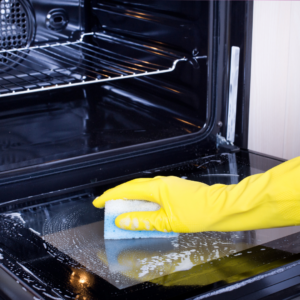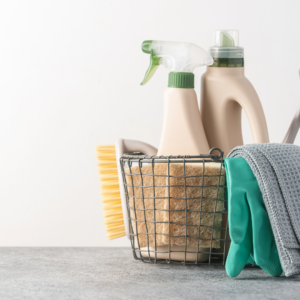Unseen Threats: How Environmental Toxins Can Seriously Impact Your Health
Many of us are unaware of the toxins we encounter daily, from the air we breathe to the products we use. However, reducing exposure to these harmful substances is critical for maintaining a healthier lifestyle. This can involve making small changes, such as using natural cleaning products or opting for organic produce. It may also mean being more mindful of the air quality in our homes and workplaces and taking steps to improve it. By taking these steps, we can minimize the impact of toxins on our bodies.
Effects of Environmental Toxins on Health
Environmental toxins are harmful substances that can adversely affect human health and the environment. These toxins can be found in the air, drinking water, and food. Exposure to environmental toxins can lead to a range of health problems, including cancer, neurological disorders, and reproductive issues.
Sources and Types of Environmental Toxins
 Understanding the sources and types of environmental toxins to reduce exposure can be challenging.
Understanding the sources and types of environmental toxins to reduce exposure can be challenging.
There are several sources of environmental toxins, including industrial pollution, pesticides, and household products. When factories release chemicals and waste into the air and water, it leads to industrial pollution.
Pesticides commonly used to protect crops from pests can contaminate soil and water.
A significant source of exposure comes from everyday household products such as cleaning supplies, air fresheners, and personal care products, which also contain toxic chemicals.
Some of the harmful ingredients in everyday consumer products include:
Phthalates
Phthalates are commonly used to produce plastics to increase their flexibility and durability. They are also in several other items, including cosmetics, fragrances, and medical devices. However, there is concern regarding their potential health effects, particularly their impact on hormonal balance and reproductive health. Be aware of the potential risks associated with phthalate exposure and take necessary steps to minimize them.
Triclosan
Many personal care products like soaps, toothpaste, and deodorants contain triclosan, a chemical compound used to fight bacteria. Triclosan, commonly found in personal care products, can negatively affect human health. Studies have demonstrated that it has the potential to disrupt hormones, weaken the immune system, and even lead to the development of antibiotic-resistant bacteria. Awareness of these potential health risks can help reduce exposure, and people may want to consider alternative products that do not contain this chemical compound.
QUATS
Quaternary Ammonium Compounds, or “QUATS,” are commonly used as disinfectants and sanitizers in household and commercial cleaning products. They are effective against bacteria and viruses, but prolonged exposure can lead to skin irritation and respiratory problems. To minimize these risks, using these products as directed and taking necessary precautions to protect yourself is important. Use gloves and a mask when cleaning with QUAT-containing products.
2-butoxyethanol
 Household cleaning products like glass cleaners, liquid soaps, and all-purpose spray cleaners contain butoxyethanol for its ability to help dissolve substances such as grease and dirt.
Household cleaning products like glass cleaners, liquid soaps, and all-purpose spray cleaners contain butoxyethanol for its ability to help dissolve substances such as grease and dirt.
When handling 2-butoxyethanol, following safety guidelines and wearing protective equipment is recommended. Although it’s a clear, colorless liquid with a sweet odor commonly used as a solvent in cleaning products, paints, and coatings, it can harm human health if not used correctly or in excessive amounts due to its highly volatile nature. So, to avoid potential health risks, take the appropriate precautions when handling this chemical.
Ammonia
Ammonia is a common ingredient in glass, floor, and bathroom cleaners.
When handling ammonia, it’s critical to exercise caution and follow proper safety measures. Inhaling large amounts of ammonia can irritate the eyes, nose, and throat and even result in respiratory problems and lung damage. If you experience any adverse symptoms after exposure to ammonia, seek medical attention immediately to ensure your safety.
Chlorine
When handling cleaning products containing chlorine, it’s crucial to exercise caution and handle them carefully. Chlorine can be harmful if ingested, inhaled, or if it comes into contact with your skin. Daily chlorine cleaning products include bleach, disinfectants, and pool or spa chemicals.
To minimize the risk of exposure, read and follow the instructions on the cleaning product’s label. It’s also important to wear gloves and protective eyewear when handling chlorine-based products and ensure the area is well-ventilated.
If you accidentally ingest chlorine or get it in your eyes, seek medical attention immediately. By taking these safety measures, you can contribute to keeping yourself and those around you safe while cleaning with chlorine.
 The U.S. Environmental Protection Agency has compiled a list of cleaning and other products that meet its Safer Choice requirements. The list includes cleaning products for both households and vehicles.
The U.S. Environmental Protection Agency has compiled a list of cleaning and other products that meet its Safer Choice requirements. The list includes cleaning products for both households and vehicles.
But don’t take their word for it. Do your homework. Read ingredients carefully or look up manufacturer labels online.
Beware of being misled by labels claiming to be “green.” Even products that claim to be “natural” or “green” do not necessarily mean they are without chemicals.
Other environmental toxins include heavy metals, pesticides, and endocrine disruptors. Endocrine disruptors are chemicals that interfere with the body’s hormonal system, leading to developmental, reproductive, and neurological problems. Heavy metals such as lead, mercury, and arsenic can accumulate in the body, leading to serious health problems. Pesticides, as previously mentioned, can harm both humans and the environment.
Avoid or Reduce Exposure to Toxins
Exposure to environmental toxins can have both short-term and long-term effects on human health.
Short-term effects may include symptoms such as nausea, headache, and dizziness, which may occur immediately following exposure to the toxin and may last for a few hours or days before subsiding.
Long-term effects can be much more severe and may not become apparent until years after the initial exposure. Chronic diseases such as cancer, respiratory diseases, and neurological disorders are among the possible long-term effects. In addition, exposure to certain toxins can lead to developmental problems in children.
Some toxins can also affect the immune system, making individuals more susceptible to infectious diseases. Awareness of the potential risks associated with exposure to environmental toxins and taking steps to minimize these risks whenever possible is essential.
Ways to Reduce Exposure to Environmental Toxins
 Reduced exposure to environmental toxins can have profound health implications, making it necessary to take measures to lead a healthy life.
Reduced exposure to environmental toxins can have profound health implications, making it necessary to take measures to lead a healthy life.
You can do this by being mindful of the products and food you consume choosing organic produce and natural cleaning products to reduce exposure to harmful chemicals.
Use a water filter to reduce exposure to contaminants, avoid plastic containers, and be mindful of the products used on the body. Additionally, detoxification can be done through dietary changes such as consuming leafy greens or using supplements and other natural remedies.
Benefits of Reducing Exposure to Environmental Toxins
One of the key benefits of reducing exposure to environmental toxins is a reduced risk of chronic diseases. Many toxins found in the environment have been linked to an increased risk of chronic diseases such as heart disease, diabetes, and cancer. Limiting exposure to these toxins can help reduce the risk of developing these serious health conditions.
Another benefit of reducing exposure to environmental toxins is increased energy levels. Toxins can harm our energy levels, leaving us feeling tired and sluggish. By reducing our exposure to these toxins, we can help boost our energy levels and feel more alert and focused throughout the day. This can significantly impact our quality of life, allowing us to enjoy more things we love without feeling drained or exhausted.
You can achieve a healthier lifestyle by making small changes, such as choosing organic products and avoiding harmful chemicals. These simple changes can significantly improve your overall health and reduce the risk of severe health problems.
Prevention is always better than cure.

